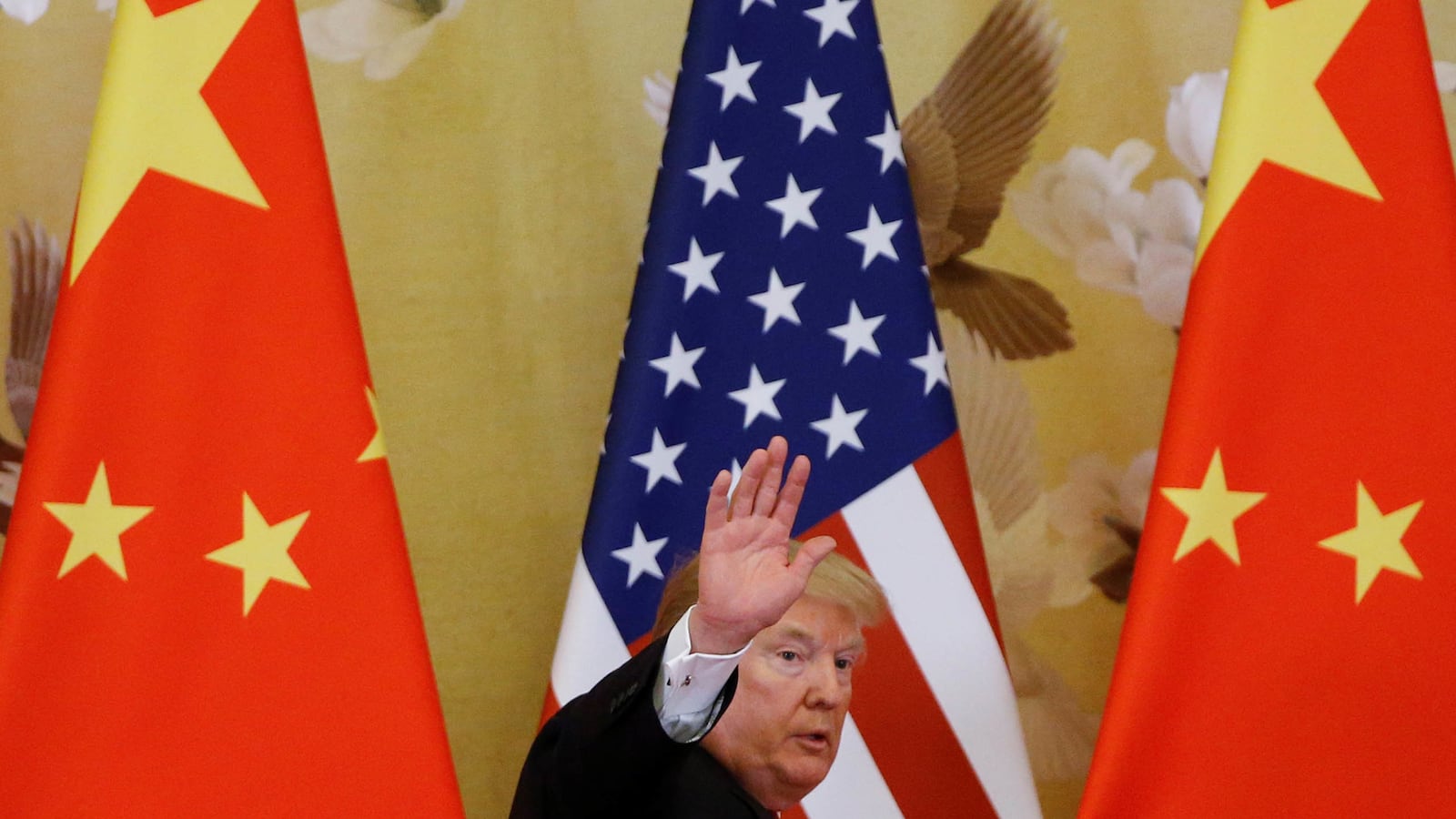President Donald Trump is surely happy he’s no longer in China. After sterling performances during the first two stops on his 13-day Asia trip, in Tokyo and Seoul, Trump wilted in the third: Beijing.
Now he is in Vietnam, in Danang at the Asia-Pacific Economic Cooperation (APEC) summit, where all the talk is about trade. There, in a much-anticipated address, he seemed to regain his footing. The APEC summit, which brings together the heads of 21 Pacific Rim nations, is especially focused on commerce this year.
In Japan and Seoul, Trump talked about arms sales to the two allies as a means of alleviating persistent trade deficits. Trump’s general announcements seemed to be a way of avoiding the need to address the unfair practices of nations whose cooperation he needed on North Korea.
In China, to which America will not sell weapons, the president employed the same general tactic, beaming as the Commerce Department announced 37 major deals totaling more than $250 billion. The Trump-size amount was astounding, but some—if not most—of the pacts are documented by memos of understanding, not firm contracts. In other words, many of them may be consummated only years from now, if ever. As Bloomberg noted of the $250 billion, “getting to that figure may require some fuzzy math.”
There was another reason not to be impressed. Major companies like Boeing and General Electric will benefit, but there was no material progress eliminating China’s increasingly restrictive trading practices, which would have benefited all American competitors, small as well as large. As Nick Marro of the Economist Intelligence Unit told CNN, “President Trump got a number of tweetable concessions, but none of which significantly changed the nature of the relationship.”
Moreover, Trump created controversy with three sentences, uttered during Thursday’s state dinner in Beijing. “I don’t blame China,” the president said, in connection with its predatory trade practices. “Who can blame a country for being able to take advantage of another country for the benefit of its citizens? I give China great credit.”
Almost nobody liked the comment, which Fox News said was delivered light heartedly. Yet whether Trump “joked” or not, he tweeted much the same comment a few hours later, and came back to it again in his Vietnam speech at the APEC summit on Friday: “I do not blame China or any other country,” he noted. “If their representatives are able to get away with [a lopsided trade deal], they were just doing their jobs.”
The president’s failure to take specific steps to remedy structural issues during the first three stops made the Danang speech especially important. In the Vietnamese city, Trump said America was willing to ink bilateral trade agreements.
“What we will no longer do is enter into large agreements that surrender our sovereignty,” he proclaimed, as he called them both unfair and unenforceable. In January, he pulled America out of the Trans-Pacific Partnership, a proposed 12-nation free-trade agreement that had been the centerpiece of President Barack Obama’s East Asia policy, the so-called “pivot.”
Trump also promised that, going forward, there would be zero tolerance for trade criminality. “The United States will no longer turn a blind eye to violations, cheating, or economic aggression,” he declared. “Those days are over.”
The problem for Trump is that America’s trade deficits with East Asian nations are not only the result of macroeconomic forces but also the failure of leaders in the region to truly open home markets, as he noted repeatedly in the Danang speech.
“Trade deals with Asian mercantilists make no sense,” Alan Tonelson, a trade expert in the Washington, D.C. area, told me late last month in e-mailed comments. “Their pervasive non-tariff barriers, created by agile, secretive bureaucracies, are excruciatingly difficult to detect and document, much less reduce or eliminate.” President Trump sounded the same theme in Vietnam, saying “we can no longer tolerate these chronic trade abuses.”
There is always recourse to the dispute resolution mechanism of the World Trade Organization when trade practices also constitute violations of WTO rules, as they often do. WTO panels can hand down enforceable rulings, but the global body imposes no penalties for violations unless they continue after a decision has been issued, by which time an American company can be irrevocably injured. Trump attacked the WTO in Danang, complaining of unfair treatment.
Tonelson, who blogs at RealityChek, argues “the only sensible approach for Washington in these cases is unilaterally establishing the bilateral terms of trade, including setting up the U.S. as judge, jury, and court of appeals for disputes.”
That appears to be exactly what Trump hopes to do.
Drastic solutions seem to be gaining favor, as Trump’s Danang address suggests. A president needing to keep majorities in the House and Senate next year, and therefore dependent on retaining blue-collar votes, probably will go to the lengths the influential Tonelson and others suggest.






